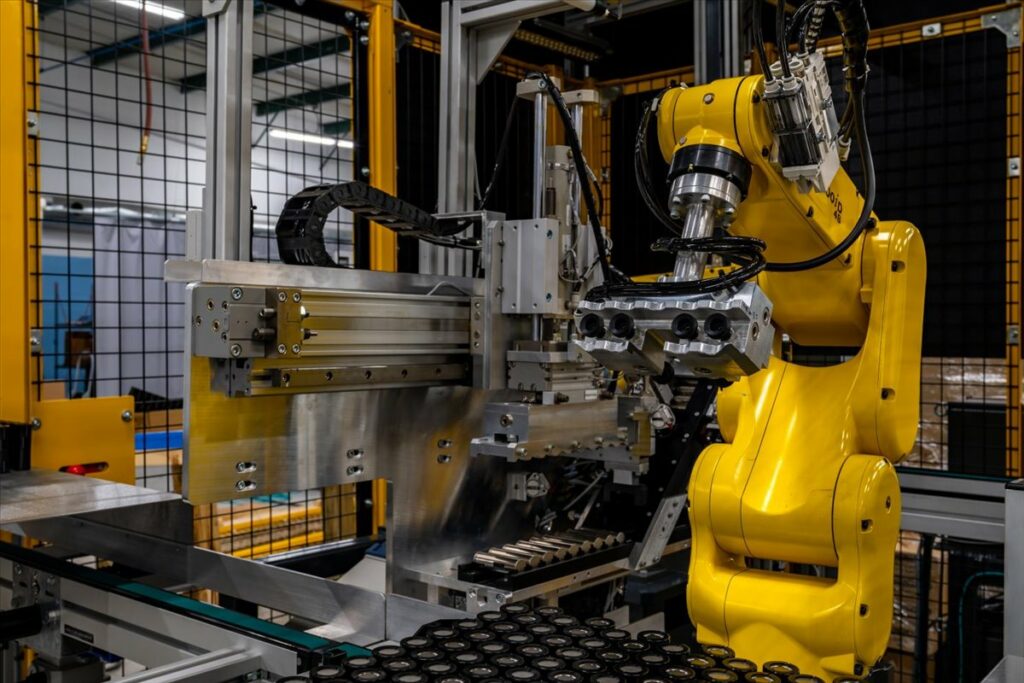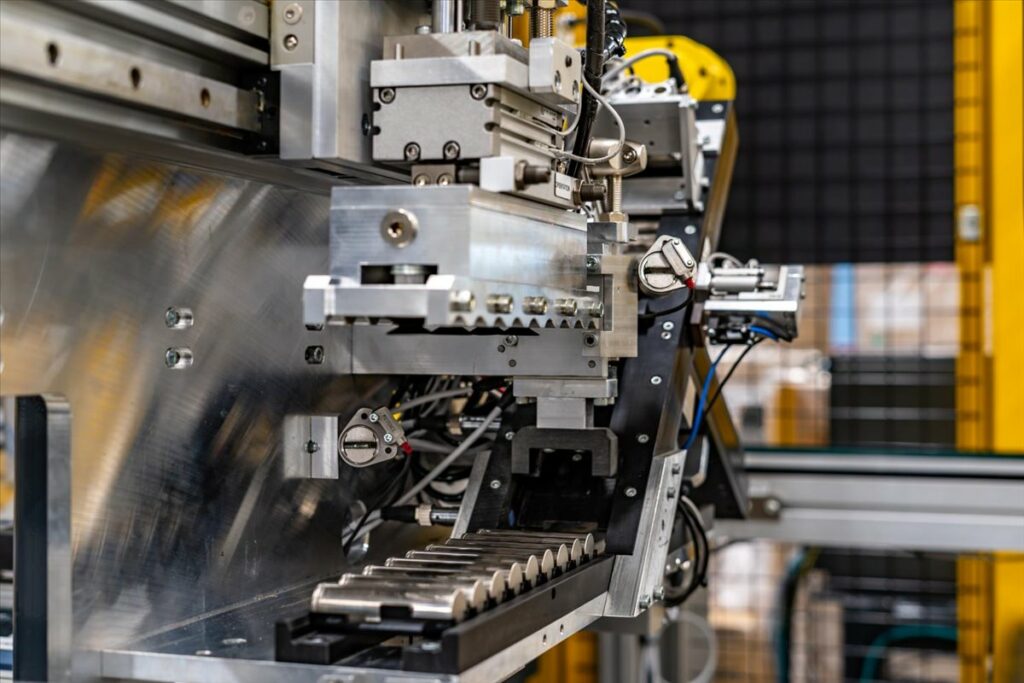
Designed for flexibility, the Battery Test and Assembly System uses vision guidance for robotic components, six-axis robots, and conveyors, allowing the system to be modified or reconfigured for varying battery sizes or battery pack configurations. (Image courtesy McAlister Design & Automation)
McAlister Design & Automation designed the system for flexibility, allowing the system to be modified or reconfigured for varying battery sizes or battery pack configurations.
WAUSEON, Ohio—A new battery system designed by McAlister Design & Automation enables inspection and testing of battery cells and the assembly of battery packs commonly used in electric vehicles and consumer products. McAlister’s Battery Test and Assembly System was developed to support market changes and future growth, McAlister said in a release.
The Battery Test and Assembly System allows battery pack manufacturers to ensure that the quality of their product meets or exceeds the requirements for its design. It tests each individual battery cell before incorporating it in the pack, mitigating the number of packs that falter because of a potential issue with a single battery cell, the company said.
McAlister Design & Automation reported that it designed the system in response to the rapid increase in demand for electric vehicles, power tools, and electronic residential equipment. The system uses industry-standard battery cell packaging, minimizing the amount of operator handling during the introduction to the testing and assembly process. The company also said it modeled the Battery Test and Assembly System around the 2170 battery for broader application benefits.
In today’s market, data tracking and storage enables traceability and is a critical aspect of manufacturing operations. The Battery Test and Assembly system offers the capability to capture, store, and analyze battery cell and pack data. This grants manufacturers the ability to trace battery pack and cell performance over the entire life cycle of their product, enabling manufacturers to manage incoming supplier quality and trace defects across their value stream, the company said.

The Battery Test and Assembly System tests each individual battery cell before incorporating it in the pack, mitigating the number of packs that falter because of a potential issue with a single battery cell. (Image courtesy McAlister Design & Automation)
The system is said to have a unique focus on flexibility. It uses vision guidance for robotic components, six-axis robots, and conveyors, allowing the system to be modified or reconfigured for varying battery sizes or battery pack configurations. The system design also features asynchronous testing and assembly stations, maximizing its throughput and minimizing the amount of time it takes to assemble a battery pack. Its pre-engineered software reportedly makes for an easily scalable and adaptable system.
To accommodate lithium-ion batteries, which are especially hazardous, the system offers integrated dunnage inspection, providing fire hazard mitigation and a safer working environment for system operators, according to McAlister Design & Automation.
Founded in 1992, McAlister Design & Automation said it was “built on the idea of being a trusted source for the automation needs of manufacturers.” Today, it provides specialized and custom automation systems while offering a collaborative problem-solving approach to “the most complex manufacturing challenges.” McAlister Design & Automation is a subsidiary of Wauseon Machine, a provider of automation systems, tube forming technologies, precision machining, and fabrication services.
